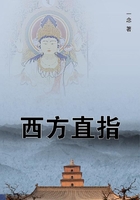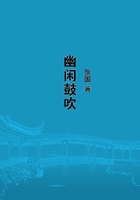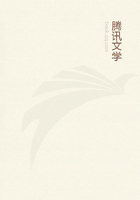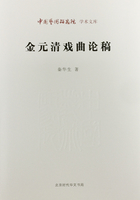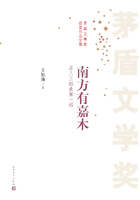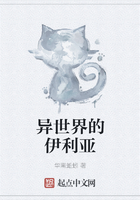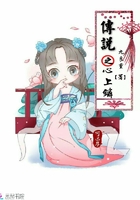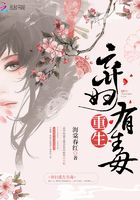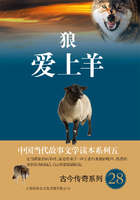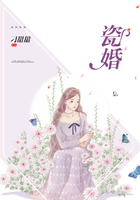"The Franklin's Tale."), --an inclination unfortunately fostered rather than checked by the uncertain gropings of contemporary science. Hence, the credulous acceptance of relics like those sold by the "Pardoner," and of legends like those related to Chaucer's Pilgrims by the "Prioress" (one of the numerous repetitions of a cruel calumny against the Jews), and by the "Second Nun" (the supra-sensual story of Saint Cecilia). Hence, on the other hand, the greedy hunger for the marvels of astrology and alchemy, notwithstanding the growing scepticism even of members of a class represented by Chaucer's "Franklin" towards such folly As in our days is not held worth a fly, and notwithstanding the exposure of fraud by repentant or sickened accomplices, such as the gold-making "Canon's Yeoman." Hence, again, the vitality of such quasi-scientific fancies as the magic mirror, of which miraculous instrument the "Squire's" "half-told story" describes a specimen, referring to the incontestable authority of Aristotle and others, who write "in their lives" concerning quaint mirrors and perspective glasses, as is well known to those who have "heard the books"of these sages. Hence, finally, the corresponding tendency to eschew the consideration of serious religious questions, and to leave them to clerks, as if they were crabbed problems of theology. For in truth, while the most fertile and fertilising ideas of the Middle Ages had exhausted, or were rapidly coming to exhaust, their influence upon the people, the forms of the doctrines of the Church--even of the most stimulative as well as of the most solemn among them,--had grown hard and stiff. To those who received if not to those who taught these doctrines they seemed alike lifeless, unless translated into the terms of the merest earthly transactions or the language of purely human relations. And thus, paradoxical as it might seem, cool-headed and conscientious rulers of the Church thought themselves on occasion called upon to restrain rather than to stimulate the religious ardour of the multitude--fed as the flame was by very various materials. Perhaps no more characteristic narrative has come down to us from the age of the Poet of the "Canterbury Tales," than the story of Bishop (afterwards Archbishop) Sudbury and the Canterbury Pilgrims. In the year 1370 the land was agitated through its length and breadth, on the occasion of the fourth jubilee of the national saint, Thomas the Martyr. The pilgrims were streaming in numbers along the familiar Kentish road, when, on the very vigil of the feast, one of their companies was accidentally met by the Bishop of London. They demanded his blessing; but to their astonishment and indignation he seized the occasion to read a lesson to the crowd on the uselessness to unrepentant sinners of the plenary indulgences, for the sake of which they were wending their way to the Martyr's shrine. The rage of the multitude found a mouthpiece in a soldier, who loudly upbraided the Bishop for stirring up the people against St. Thomas, and warned him that a shameful death would befall him in consequence. The multitude shouted Amen--and one is left to wonder whether any of the pious pilgrims who resented Bishop Sudbury's manly truthfulness, swelled the mob which eleven years later butchered "the plunderer" as it called him, "of the Commons." It is such glimpses as this which show us how important the Church had become towards the people.
Worse was to ensue before the better came; in the meantime, the nation was in that stage of its existence when the innocence of the child was fast losing itself, without the self-control of the man having yet taken its place.
But the heart of England was sound the while. The national spirit of enterprise was not dead in any class, from knight to shipman; and faithfulness and chastity in woman were still esteemed the highest though not the universal virtues of her sex. The value of such evidence as the mind of a great poet speaking in his works furnishes for a knowledge of the times to which he belongs is inestimable. For it shows us what has survived, as well as what was doomed to decay, in the life of the nation with which that mind was in sensitive sympathy. And it therefore seemed not inappropriate to approach, in the first instance, from this point of view the subject of this biographical essay,--Chaucer, "the poet of the dawn." For in him there are many things significant of the age of transition in which he lived; in him the mixture of Frenchman and Englishman is still in a sense incomplete, as that of their language is in the diction of his poems. His gaiety of heart is hardly English; nor is his willing (though, to be sure, not invariably unquestioning) acceptance of forms into the inner meaning of which he does not greatly vex his soul by entering; nor his airy way of ridiculing what he has no intention of helping to overthrow; nor his light unconcern in the question whether he is, or is not, an immoral writer. Or, at least, in all of these things he has no share in qualities and tendencies, which influences and conflicts unknown to and unforeseen by him may be safely said to have ultimately made characteristic of Englishmen. But he IS English in his freedom and frankness of spirit; in his manliness of mind; in his preference for the good in things as they are to the good in things as they might be; in his loyalty, his piety, his truthfulness. Of the great movement which was to mould the national character for at least a long series of generations he displays no serious foreknowledge; and of the elements already preparing to affect the course of that movement he shows a very incomplete consciousness. But of the health and strength which, after struggles many and various, made that movement possible and made it victorious, he, more than any one of his contemporaries, is the living type and the speaking witness. Thus, like the times to which he belongs, he stands half in and half out of the Middle Ages, half in and half out of a phase of our national life, which we can never hope to understand more than partially and imperfectly. And it is this, taken together with the fact that he is the first English poet to read whom is to enjoy him, and that he garnished not only our language but our literature with blossoms still adorning them in vernal freshness,--which makes Chaucer's figure so unique a one in the gallery of our great English writers, and gives to his works an interest so inexhaustible for the historical as well as for the literary student.

